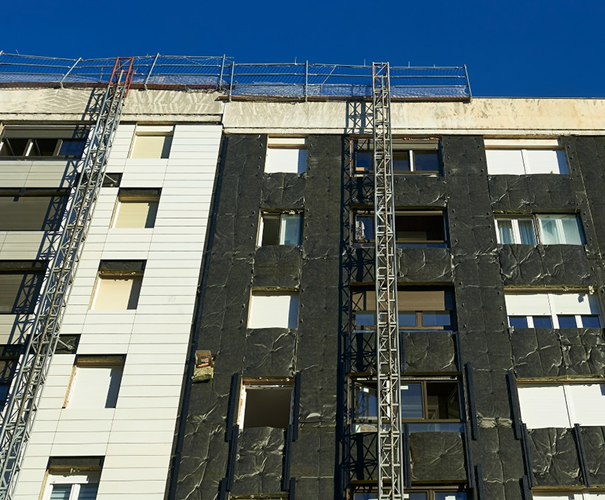SUSTAINABLE CITIES
Focus areas / Sustainable Cities

Sustainable cities are crucial for the green transition and net-zero goals, especially considering the rapid urbanization trend. By 2050, it is projected that two-thirds of the world’s population will reside in urban areas. This unprecedented growth underscores the urgent need for sustainable urban development, particularly related to climate mitigation and adaptation. By embracing sustainable practices, cities can become engines of economic growth, environmental stewardship, and social progress.
Catalyzing transformative ideas

Financing mechanisms for building renovation.
As highlighted by Eurostat (2023), 85% of buildings in the European Union were constructed before 2000, with 75% exhibiting poor energy performance. To effectively minimize environmental impacts and drive sustainability in the construction and housing sectors, it is essential to implement strategies focused on energy efficiency, the use of alternative energy sources, and architectural designs that prioritize resource conservation.
Alinnea’s working group has proposed a a comprehensive set of recommendations to streamline access to financing and subsidies for building rehabilitation. Access the full report here.
This year, Alinnea will continue working on built environment issues, trying to give further response to the identified barriers.